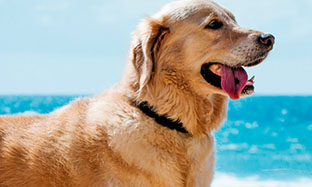
10 Tips for Training Your New Puppy
One of the most rewarding responsibilities of being a pet parent is training your new puppy. It not only strengthens the bond between you and your furry friend but also ensures a well-behaved companion in the long run. Let us explore some essential puppy training tips that emphasize the importance of positive reinforcement, consistency, and patience.
Positive Reinforcement
Positive reinforcement is the most effective method for training your pup. Focus on rewarding good behaviour rather than punishing the bad. This creates a positive association between good behaviour and positive outcomes. Be cautious not to inadvertently reward unwanted behaviour; instead, wait for moments of calmness before showering your pup with attention.
Discover the Ideal Reward
Discover what motivates your puppy. While some dogs are food enthusiasts, others prefer play sessions or affection. Experiment with various rewards to identify what resonates with your pup, ensuring a more engaged and responsive training experience.
Consistency is Key
Consistency is crucial in dog training and using basic puppy training commands can be an effective tool. Use the same commands and tones consistently, and ensure everyone in your household follows the same rules. Dogs thrive on routine and will learn faster when expectations remain constant.
Brief and Frequent Training Sessions
Short, frequent puppy training schedules are more effective than lengthy ones. Limit sessions to five minutes to prevent distraction or frustration. Change the training environment and conditions to help your pup generalize commands across different situations.
Gradual Skill Development
When tackling complex behaviours or behaviour modification, break tasks into smaller parts. For instance, when training "come," reward your pup for taking even a single step towards you initially. Gradually build on these small achievements to reinforce the entire behaviour.
Infuse Fun into Training
Ensure that training remains enjoyable for both you and your pup. Incorporate play sessions between repetitions, and consider teaching your pup tricks alongside basic obedience commands. Fun and positive energy enhance the learning experience for your furry friend.
Acknowledge Small Victories
Celebrate every small improvement. Acknowledging incremental progress, no matter how minor, helps keep both you and your puppy motivated throughout the training process.
Seamless Integration and Effective Communication
Integrate training seamlessly into your daily routine. Incorporate commands before meals, walks, or playtime, making it easier to fit in multiple short sessions throughout the day.
Also combine hand signals with verbal commands, as many dogs respond well to visual cues. Starting with hand signals and gradually introducing verbal commands can enhance your pup's understanding of your expectations.
Prevent Destructive Chewing
Puppies love to chew. Instead of attempting to eliminate this behaviour, teach your pup which items are appropriate chew toys. Redirect your puppy to appropriate toys, like dog chews, to reinforce positive chewing behaviour.
Training Your Puppy to Be Left Alone
Avoid the temptation to be with your puppy constantly. Foster independence by gradually getting your pup comfortable with being alone. Start with simple actions like offering a food toy and stepping out of the room, gradually extending the time alone. This practice, both with and without a crate, helps prevent separation anxiety.
Conclusion
Training your new puppy requires time, patience, and a positive approach. By following the above puppy training tips, you will set the foundation for a well-behaved and happy companion. Remember, consistency, positive reinforcement, and a little bit of fun go a long way in creating a strong bond with your four-legged friend.
And if you encounter challenges, consider seeking the expertise of a professional dog trainer or attending a training class. Ensure the trainer uses positive reinforcement techniques and check reviews or references to make an informed decision.
Take a look at our puppy food range.
- How to feed my dog correctly ?
- How to Choose the Right Shampoo for Your Dog
- Worms in Dogs: Diagnosis, Prevention, and Treatments
- How to Groom Your Dog at Home
- How to take care of your dog’s teeth to avoid tartar ?
- Welcoming a puppy or a kitten in your home: practical tips before your pet’s arrival
- What nutrition do my puppy and young dog need?
- Welcoming a puppy or a kitten in your home: practical tips before your pet’s arrival
- How to Groom Your Dog at Home
- How to Choose the Right Shampoo for Your Dog
- Worms in Dogs: Diagnosis, Prevention, and Treatmentss
- What nutrition do my puppy and young dog need?
- How to take care of your dog’s teeth to avoid tartar ?
- How to feed my dog correctly ?

